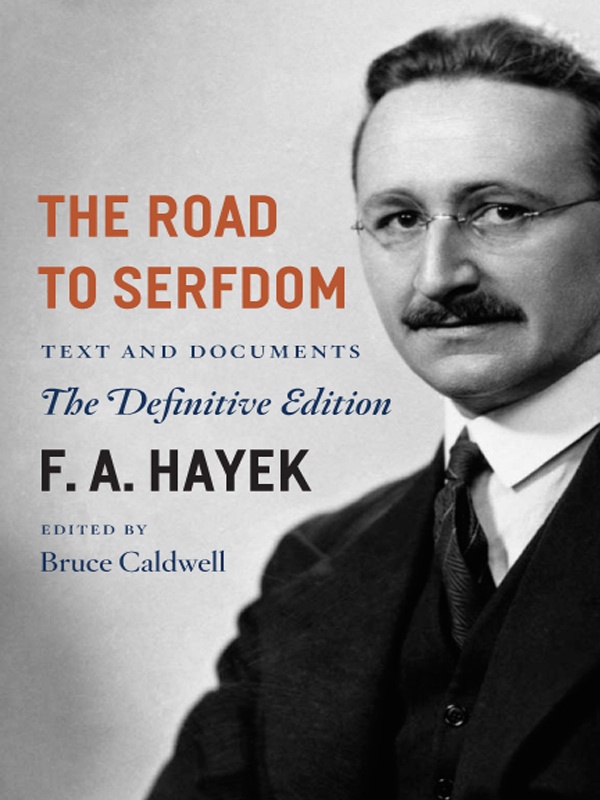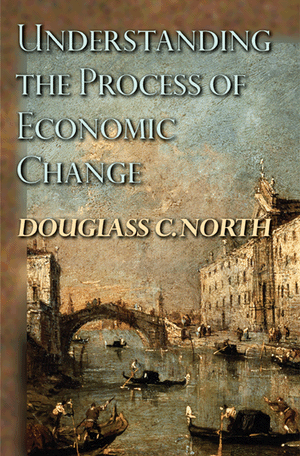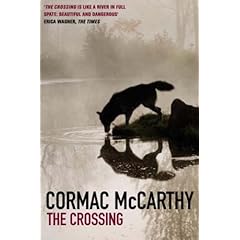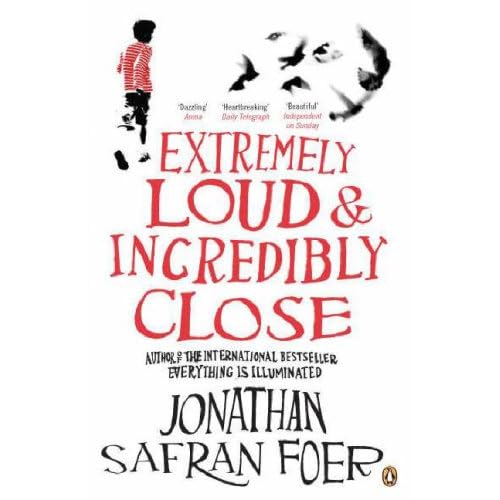Tuesday, August 12, 2008
Here's a quick summary of books that I have been reading recently, both fiction and non-fiction.
Non-Fiction
 Friedrich Hayek's The Road to Serfdom is Hayek's major work criticising the basis of socialist 'planning' as capable of maintaining individual liberty. Specifically, as planning becomes more and more prevalent in a society, the respect of individual liberties is likely to decrease and society will probably tend towards Totalitarianism. The book has assisted me in clarifying several of my thoughts on liberty and freedom, it's also helped me to understand the nuances of socialism which I had not adequately confronted previously. I plan to read more of Hayek's work, along with trying to do some more reading into its basis in thinkers on individualism, liberty and so forth. Noting which, I am particularly interested in reading James Galbraith's new book, The Predator State in which he purportedly argues that government planning will be required to combat the predatory planning that is currently pervasive amongst corporations.
Friedrich Hayek's The Road to Serfdom is Hayek's major work criticising the basis of socialist 'planning' as capable of maintaining individual liberty. Specifically, as planning becomes more and more prevalent in a society, the respect of individual liberties is likely to decrease and society will probably tend towards Totalitarianism. The book has assisted me in clarifying several of my thoughts on liberty and freedom, it's also helped me to understand the nuances of socialism which I had not adequately confronted previously. I plan to read more of Hayek's work, along with trying to do some more reading into its basis in thinkers on individualism, liberty and so forth. Noting which, I am particularly interested in reading James Galbraith's new book, The Predator State in which he purportedly argues that government planning will be required to combat the predatory planning that is currently pervasive amongst corporations.
After Hayek, I began Douglas North's Understanding The Process of Economic Change I thought this was a fantastic book, which makes one of the first attempts to discuss the necessary grounding of economics in more proximal mechanisms of human beliefs, neuroscience and cognitive science. Though the cognitive science on which he draws could be contested ground (he preferred the connectionist style models of Andy Clarke and co. to more nativist models), the theoretical idea of grounding economics in cognitive science and neuroscience is, I believe, the way forward. He also allies his cause with history, anthropology, psychology and sociology arguing that multidisciplinary work will be the future for better behavioural models. He argues that we live in a non-ergodic, path dependent (i.e. historically contingent) world in which institutions, culture and all sorts of other things are manifested in our beliefs and actions in the world. He argues further for grounding economics in evolutionary theory and biology, discussing the biological models of kin altruism and genetic selection and how for most of human history we have engaged in personal exchange, whereas the past few hundred years and contemporary society requires us to engage primarily in impersonal exchange which grates against our biological heritage (as far as I know this is also taken up in a recent book of Vernon Smith's). He contrasts experiences of institutions in the US versus South America, he makes a case study of the USSR and establishes several guidelines that future research should take consideration of including non-ergodicity, institutions, culture, transaction cost economics and others. I found this to be a profoundly enjoyable and easy to read economics book. Thanks gain to Kait who gave this to me as a birthday gift.
Andy Clarke and co. to more nativist models), the theoretical idea of grounding economics in cognitive science and neuroscience is, I believe, the way forward. He also allies his cause with history, anthropology, psychology and sociology arguing that multidisciplinary work will be the future for better behavioural models. He argues that we live in a non-ergodic, path dependent (i.e. historically contingent) world in which institutions, culture and all sorts of other things are manifested in our beliefs and actions in the world. He argues further for grounding economics in evolutionary theory and biology, discussing the biological models of kin altruism and genetic selection and how for most of human history we have engaged in personal exchange, whereas the past few hundred years and contemporary society requires us to engage primarily in impersonal exchange which grates against our biological heritage (as far as I know this is also taken up in a recent book of Vernon Smith's). He contrasts experiences of institutions in the US versus South America, he makes a case study of the USSR and establishes several guidelines that future research should take consideration of including non-ergodicity, institutions, culture, transaction cost economics and others. I found this to be a profoundly enjoyable and easy to read economics book. Thanks gain to Kait who gave this to me as a birthday gift.
Fiction
Even though I spend most of my time reading academically inclined articles and books, I attempt still to maintain some connection with fiction. Apart from (what I call) "crappy fantasy" to take my mind of things sometimes I also attempt to read other 'wahks of fickshin' (this phrase must be said with a poncy accent).

The first of recent books was Cormac McCarthy's The Crossing. This book is stark, beautiful and mournful. I know that mournful isn't what many people look for when they are searching for a novel, but McCarthy's writing is so consistently beautiful that I cannot help but recommend this book. Yes, it is tragic, something to which McCarthy tends, but the tale at the centre of the story is something which has great allure - the idea of making a 'crossing' definitively establishing your independence and returning to a changed world then repeating the same cycles in attempts to understand yourself. The urge to move into and out of a world in which your language is spoken and another in which it is not: your tongue loses itself and gains a sense of the foreignness and you are changed. A process in which you find yourself crossing back and forth between that which is familiar and close and that which is foreign and full of allure. None of what I have written does any justice to the poetry of the book, and, upon reflection, I could read the book again and probably will in the future. It is the fourth book of McCarthy's that I have read and all of them are awfully good. Soon I will be reading Cities of the Plain to round up the Border Trilogy. I would like to try to find Blood Meridian while I am in London.
Jonathan Safran Foer's Extremely Loud and Incredibly Close is a brilliant work of fiction, it is, moreover, of a completely different style to McCarthy which is why I think reading it when I did made it even more fantastic (I think I have an internal theory that reading certain books at certain times makes it easier to enjoy them and/or appreciate them). The narrative revolves around the sojourn of an incredibly talented 9-year-old boy as he makes a track around New York City where he lives. I don't want to attempt to classify this novel as it is quite experimental, containing photographs, changes in perspective of the different characters and various other devices. One thing I would recommend to anyone reading it is: don't read the blurb - it is poorly written and gives away much of the story, as do several reviews. Bastards I tell you! Just read the book and tell me what you think. I am looking forward to reading Safran Foer's other books including Everything is Illuminated.
Up Next? Several books... I am planning to tackle Glenn Loury's The Anatomy of Racial Inequality which I have begun, but I got caught up in my essay on Equality of Opportunity so I ditched it for a while. It is sitting on my table calling to me, along with some papers I intend to read. Oh well... I'll update you all soon enough.
Non-Fiction
 Friedrich Hayek's The Road to Serfdom is Hayek's major work criticising the basis of socialist 'planning' as capable of maintaining individual liberty. Specifically, as planning becomes more and more prevalent in a society, the respect of individual liberties is likely to decrease and society will probably tend towards Totalitarianism. The book has assisted me in clarifying several of my thoughts on liberty and freedom, it's also helped me to understand the nuances of socialism which I had not adequately confronted previously. I plan to read more of Hayek's work, along with trying to do some more reading into its basis in thinkers on individualism, liberty and so forth. Noting which, I am particularly interested in reading James Galbraith's new book, The Predator State in which he purportedly argues that government planning will be required to combat the predatory planning that is currently pervasive amongst corporations.
Friedrich Hayek's The Road to Serfdom is Hayek's major work criticising the basis of socialist 'planning' as capable of maintaining individual liberty. Specifically, as planning becomes more and more prevalent in a society, the respect of individual liberties is likely to decrease and society will probably tend towards Totalitarianism. The book has assisted me in clarifying several of my thoughts on liberty and freedom, it's also helped me to understand the nuances of socialism which I had not adequately confronted previously. I plan to read more of Hayek's work, along with trying to do some more reading into its basis in thinkers on individualism, liberty and so forth. Noting which, I am particularly interested in reading James Galbraith's new book, The Predator State in which he purportedly argues that government planning will be required to combat the predatory planning that is currently pervasive amongst corporations. After Hayek, I began Douglas North's Understanding The Process of Economic Change I thought this was a fantastic book, which makes one of the first attempts to discuss the necessary grounding of economics in more proximal mechanisms of human beliefs, neuroscience and cognitive science. Though the cognitive science on which he draws could be contested ground (he preferred the connectionist style models of
 Andy Clarke and co. to more nativist models), the theoretical idea of grounding economics in cognitive science and neuroscience is, I believe, the way forward. He also allies his cause with history, anthropology, psychology and sociology arguing that multidisciplinary work will be the future for better behavioural models. He argues that we live in a non-ergodic, path dependent (i.e. historically contingent) world in which institutions, culture and all sorts of other things are manifested in our beliefs and actions in the world. He argues further for grounding economics in evolutionary theory and biology, discussing the biological models of kin altruism and genetic selection and how for most of human history we have engaged in personal exchange, whereas the past few hundred years and contemporary society requires us to engage primarily in impersonal exchange which grates against our biological heritage (as far as I know this is also taken up in a recent book of Vernon Smith's). He contrasts experiences of institutions in the US versus South America, he makes a case study of the USSR and establishes several guidelines that future research should take consideration of including non-ergodicity, institutions, culture, transaction cost economics and others. I found this to be a profoundly enjoyable and easy to read economics book. Thanks gain to Kait who gave this to me as a birthday gift.
Andy Clarke and co. to more nativist models), the theoretical idea of grounding economics in cognitive science and neuroscience is, I believe, the way forward. He also allies his cause with history, anthropology, psychology and sociology arguing that multidisciplinary work will be the future for better behavioural models. He argues that we live in a non-ergodic, path dependent (i.e. historically contingent) world in which institutions, culture and all sorts of other things are manifested in our beliefs and actions in the world. He argues further for grounding economics in evolutionary theory and biology, discussing the biological models of kin altruism and genetic selection and how for most of human history we have engaged in personal exchange, whereas the past few hundred years and contemporary society requires us to engage primarily in impersonal exchange which grates against our biological heritage (as far as I know this is also taken up in a recent book of Vernon Smith's). He contrasts experiences of institutions in the US versus South America, he makes a case study of the USSR and establishes several guidelines that future research should take consideration of including non-ergodicity, institutions, culture, transaction cost economics and others. I found this to be a profoundly enjoyable and easy to read economics book. Thanks gain to Kait who gave this to me as a birthday gift. Fiction
Even though I spend most of my time reading academically inclined articles and books, I attempt still to maintain some connection with fiction. Apart from (what I call) "crappy fantasy" to take my mind of things sometimes I also attempt to read other 'wahks of fickshin' (this phrase must be said with a poncy accent).

The first of recent books was Cormac McCarthy's The Crossing. This book is stark, beautiful and mournful. I know that mournful isn't what many people look for when they are searching for a novel, but McCarthy's writing is so consistently beautiful that I cannot help but recommend this book. Yes, it is tragic, something to which McCarthy tends, but the tale at the centre of the story is something which has great allure - the idea of making a 'crossing' definitively establishing your independence and returning to a changed world then repeating the same cycles in attempts to understand yourself. The urge to move into and out of a world in which your language is spoken and another in which it is not: your tongue loses itself and gains a sense of the foreignness and you are changed. A process in which you find yourself crossing back and forth between that which is familiar and close and that which is foreign and full of allure. None of what I have written does any justice to the poetry of the book, and, upon reflection, I could read the book again and probably will in the future. It is the fourth book of McCarthy's that I have read and all of them are awfully good. Soon I will be reading Cities of the Plain to round up the Border Trilogy. I would like to try to find Blood Meridian while I am in London.

Jonathan Safran Foer's Extremely Loud and Incredibly Close is a brilliant work of fiction, it is, moreover, of a completely different style to McCarthy which is why I think reading it when I did made it even more fantastic (I think I have an internal theory that reading certain books at certain times makes it easier to enjoy them and/or appreciate them). The narrative revolves around the sojourn of an incredibly talented 9-year-old boy as he makes a track around New York City where he lives. I don't want to attempt to classify this novel as it is quite experimental, containing photographs, changes in perspective of the different characters and various other devices. One thing I would recommend to anyone reading it is: don't read the blurb - it is poorly written and gives away much of the story, as do several reviews. Bastards I tell you! Just read the book and tell me what you think. I am looking forward to reading Safran Foer's other books including Everything is Illuminated.
Up Next? Several books... I am planning to tackle Glenn Loury's The Anatomy of Racial Inequality which I have begun, but I got caught up in my essay on Equality of Opportunity so I ditched it for a while. It is sitting on my table calling to me, along with some papers I intend to read. Oh well... I'll update you all soon enough.
Subscribe to:
Post Comments (Atom)




Good stuff. I like that you are doing these reviews - it's good for you AND for us... :-)
Have you read any other McCarthy? I'm keen to read most of his novels, but especially Blood Meridian. I'm busy with Philip Roth's The Plot Against America at the moment - awesome book.
Of McCarthy I have read: The Road, No Country for Old Men, and All The Pretty Horses. All really good. Plan to read Philip Roth at some point - far too many good books out there!
Philip Roth is a must. They're all equally full of grit and grime. good stuff.